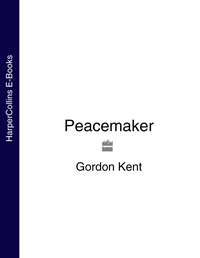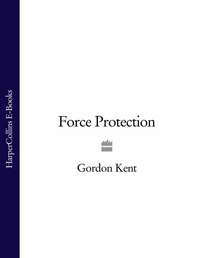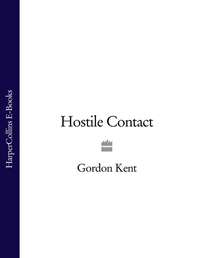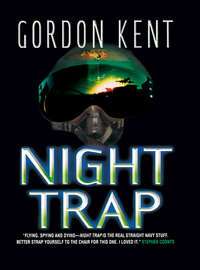
Полная версия
The Spoils of War
“You had to, yes? Your mother would have asked you to do this work for them.” Zahirah sounded concerned. Perhaps she, too, despite her modern clothes, was a mother.
“They took care of us when my father died.”
“Of course. And you—what? You reported to them on what Salem found?”
Rashid put his face in his hands. He sobbed, “Not after we were friends! I—” he gulped air, swallowed the word loved. “We were friends.”
She nodded. Hamal leaned across her. “You were at the dig at Tel-Sharm-Heir’at?”
Rashid nodded. He could see the dig, the pit facing the sea, and everything covered with blue tarps against the winter rain. The row of burial urns that started them on the site. The stone structure nearest the sea that had electrified Salem.
“You were there when Qatib was beaten?” Hamal asked.
“I—ran.” The beach full of men. Salem kneeling, hit with a shovel. The bearded man he hit with a hammer.
Zahirah nodded. Hamal made a mark in the manila folder.
“Salem Qatib is an archaeologist, yes?” Hamal asked.
Rashid was still on the beach in his mind. His hands were shaking again, but his voice was steady. “He went to school in America.”
“He entered the Masters program in Archaeology and Ancient Studies at the University of Michigan,” Hamal said. “Which means that he is, in fact, an archaeologist. I would like to hear you confirm that, Rashid.”
“Yes, he is an archaeologist.”
“He is conducting an illegal dig.”
“Are there legal digs here?” Rashid surprised himself. But he wasn’t as afraid as he had been.
The woman, Zahirah, raised her carefully plucked brows. The man smiled, grunted a laugh. “Digs are legal if we license them. Hmm? And if not—then we seize them.”
Rashid looked at the table in front of him, because he now knew who had taken and beaten Salem. His sweat turned to ice, his relaxation vanished.
“You—” he began. He started again. “Where is Salem? Have you arrested him?” And he thought Do they know I hit the man with a hammer?
Hamal took a drag on his cigarette, exhaled to the side, away from Zahirah. “We seized the dig at Tel-Sharm-Heir’at. We do not have your friend Salem. Do you know that Salem Qatib was abducted that night? After my men took the site?”
Rashid put his hands out, grabbed the table as if he might slide off his chair. “No.”
“He was taken by Israelis, Rashid. Do you know anything about that?”
“No! No!” Rashid’s head went back and forth between them.
“And they killed him.” Hamal’s voice was brutal.
Rashid sat in shock.
Tel Aviv
Alan Craik and a woman detective named Miriam Gurion were sitting in a cubicle in the homicide detectives’ “room,” really a space big enough to play basketball in. She was in her late forties, he thought, her face lined by sun and wind, her hair gray. She spoke English well but with an almost-swallowed “r” that sometimes disappeared into her throat.
“How do you know I was lied to?” he said. He watched her eyes, which met his honestly enough but flicked away to each side; she had the head movements, too, of the watcher who is always checking the periphery. The watchfulness of a cop in a place where bombs go off. Or of a detective of homicide who thought the walls had ears.
“The 27-14,” she said. “The 27-14 is a routine piece of paper, but it has to be signed when we say it’s a homicide—and that’s my name on it, and in fact I signed it.” She leaned toward him over her messy desk and lowered her voice. “Two years ago.”
Behind her, three cat photos and five people photos were stuck to the cubicle wall; the people, he had already figured out, were the same two, young and older, one also in a wedding dress—her daughters?
“Let’s go for coffee,” she said.
“Yeah, but I don’t—”
“I don’t say another word in here.” She was almost whispering. She led him out a side door of the building to a sidewalk café a block away, not mentioning Salem Qatib or the paper or what she had meant by “two years ago.”
He ordered coffee, she a soda. While they waited, she lit a cigarette and puffed and simply shook her head when he tried to talk. She blew out smoke and he unconsciously waved it away. “Oh, you’re one of those,” she said and turned sideways to him, holding the cigarette low on her street side. The waiter put the coffee and the soda down between them and hovered, and she made a shooing gesture. When he was gone, she said, “Tell me about this detective who gave you the papers.”
“What’s your interest?” he said.
She grunted. “My interest is my job.” She puffed, exhaled out of the street side of her lips. “My interest is in living in a good country, where the cops don’t tell lies. This detective you talked to told you lies.”
He told her about Berudh, described him, his office. She said, “Mossad.” When he looked skeptical, she said, “He has to be a Mossad liaison. We have to work with them, but they’re bastards. So they lied to you.” She got out another cigarette, played with a cheap lighter, said, “I didn’t want to say these things at Dizengoff Street. You understand. But faking a homicide file, that’s serious business.”
“You don’t know it’s faked.”
She sighed. She held out her hand. He didn’t get it. She moved the hand impatiently, then lit her new cigarette, put the hand out again. He gave her the blue folder with the papers Berudh had given him.
Miriam Gurion opened the papers on the café table and put her head low over them as if she were near-sighted. She smoked and turned pages, separating them into two stacks. “This is bullshit,” she said. “You believe in feelings? I get bad feelings.” She stubbed out the end of the cigarette and burrowed for another in her huge handbag. With her head, she indicated one of the piles she had made. “These papers, you see them? They’re authentic—I know, because they’re from a case I had two years ago. That’s what I meant, I signed the 27-14 two years ago—these are all from another case.” She touched the other pile. “These are new, mostly dreck. See, your Berudh or somebody dug out my old case, probably scanned the file into a computer, printed it out, blocked out the name and the date, typed in new ones, rescanned—and here we are! A nice case file on somebody named Qatib, Salem, to give to the nice American officer who only wants to get it over with so he can go home. Eh?”
She lit a new cigarette and leaned back, smoking, her eyes on the street, and then she said without looking at him, “I don’t believe this crap about your guy, what’s his name—Qatib—being taken to the West Bank for burial. The family is in the US, you said? So the burial story is bullshit. I think maybe so is the story about people calling him in missing; we’ll check this. Right now.” She got a cell phone from the overstuffed handbag. Alan figured there was a gun in there somewhere, too; could she ever find it if she needed it? She punched in numbers, said to him, “I think we need to work together.” Then she was barking Hebrew into the cell, touching new numbers, making another call.
When she was done, she threw the phone into the handbag’s open maw and stubbed out the cigarette and lit another. “The file on my two-year-old case is checked out from storage. Okay? Also, there’s nothing in the missing persons log for any calls last night about Qatib, Salem.” She put a hand on one pile of paper. “All bullshit.”
“Okay. Why?”
“You tell me, darling.” She blew out smoke. “What a bloody mess! I’m going to have to open a file, new case, plus file a complaint against your Berudh, plus I got no body—” She sat back and puffed, then looked at the papers she had said were from her old case and said, “Maybe we go find a body.” Smiled.
“Qatib?”
Her open hand, turned upward, floated over the table. “Why do they pick my case to do their faking? Chance? No. Something against me? No. Then why? Very fast work, darling, doing all this between about midnight and this morning. So they pick my case because a lot of the work is done for them already, nu?” The hand closed into a fist. She laughed. “Two things: somebody knew my old case, remembered it, and maybe there was a connection. Like the same people found the body? Or turned it into a body? Mmm?” She ground the cigarette into her saucer. “Let’s take a ride to Jaffa.”
The coffee was terrible, and Alan didn’t mind leaving the café, but he didn’t get it. “What’s in Jaffa?”
She waved the waiter toward her and scrambled in her bag for money; Alan was late in reaching for his own. “Two years ago, a body was found in an old military barracks there. He was young, Palestinian. I got the case. Mossad waved me off when I seemed to be getting somewhere. Now that case file is being used for the body of another young Palestinian. And here is Mossad again.” She stood. “Maybe Qatib, Salem, ended up in Jaffa.”
He looked at his watch. He had only an hour until he was supposed to meet Rose. Dukas had told him not to behave like an intelligence officer. He’d done enough. “I think I’d have to have more to go on than that.”
She gave him a look that might have been disgust and then sat again and got the cell phone out. She did the numbers, held up a finger, eyebrows arched, as if saying Watch what I’ll pull out of my ass now! She waited, sighed, jerked upright and began to bellow Hebrew into the phone. Then she listened, said something that sounded awfully like the Hebrew for bullshit and closed the phone with a distinct, though small, bang. “He’s pissing his drawers, he’s so scared!”
“Who?”
“The guy, darling, the guy who runs the place in Jaffa where they found the body two years ago! He knows something, and I scared the piss out of him! Are you coming or not?”
He felt as if hands were dragging at him to pull him down into his chair, but he stood and said, “Let’s go,” which was not what he wanted to do at all.
Gaza
Both the colonel and the woman had left the room. Alone, Rashid cried a little, silently, straight-backed. He had feared this very thing, that Salem was dead, when he saw Saida’s apartment. And now it was proven true.
The woman brought him tea, and he drank it. The colonel came back with Rashid’s backpack and placed it on the table with a plastic zip-lock bag that held the contents of Rashid’s pockets when he was taken.
When they started again, their tone was different, as if he had passed a test and now they were all on the same side. They asked him questions, hundreds of them, and he answered as best he could; about Salem, about Hamas and their interest in the dig, about the dig itself at Tel-Sharm-Heir’at.
They gave him food. They didn’t ask anything about the man he had hit with the hammer.
After several hours, Hamal appeared satisfied. It was Zahirah who was still interested in the dig and everything about it, so it was Zahirah who asked the question that changed everything.
She asked, “Where were you for the last twenty hours? Why were you coming back to Gaza?”
And Rashid told her. He was past concealment, except where he tried to cover his act of violence at the dig. He told them about hiding in the old ruins under his home town of Acco. And he told them about going to Saida’s apartment. And eventually, he told them about the flash card he had found in Salem’s coat.
They brought in his belongings. He showed them the card.
Hamal lit another cigarette. “Who else had been in her apartment, Rashid?”
Rashid shrugged. “It was all pulled apart,” he said slowly. “Everything ruined.”
And Hamal raised his eyebrows at Zahirah and said, “Hamas.”
Zahirah nodded, and then turned back to Rashid. Her voice was especially gentle, almost tender. “Who is this Saida?” she asked.
After a moment Rashid said her surname. “Frayj. Saida Frayj. She—Salem.” He stopped in a conflict of desire to incriminate and desire to protect. While he struggled to find words, his interrogators exchanged glances.
Hamal left. Zahirah stayed, asking questions about the dig, about the stone structure, about how long Salem had been interested in it. Rashid tried to be careful. They could be lying; Salem could be in a cell just under Rashid’s feet. He tried to cover Salem; he told Zahirah that Salem had only just found the stone structure.
“Do you know what it is, Rashid? That stone structure?” she asked.
“A tomb?” He knew what Salem had said about it. He didn’t want to betray too much.
“A very particular type of tomb, Rashid. A tholos tomb. A stone chamber made by Greeks and no one else.”
“Oh,” he said, trying to sound surprised.
Then Hamal returned with a laptop computer. He turned it on, inserted the card, and in a minute he had the card opened. He and Zahirah crouched over the screen, which was hidden from Rashid by the angle.
“There we go,” Hamal said.
Then he laughed. Zahirah turned her face away.
Hamal began to stare intently. He swore. “Zahirah, look at what she’s holding. Look at it!”
The woman did as she was told. She breathed in sharply, leaned forward, reached forward to touch the screen. The vivid colors on the screen lit her face, so that she looked younger and more mysterious to Rashid. She played with the keyboard, spun the screen so that Rashid could see the image.
On the screen was a naked woman, her breasts prominent and glossy in the harsh light of the camera’s flash. She was handsome, her features strong, her nose long and fine, her eyebrows heavy and black, and her eyes were filled with reflected light. They glowed red at the centers. She was smiling.
Saida, the slut.
In her hands was a two-handled cup. It was gold.
“Do you know this woman?” Hamal asked him.
Rashid spat, “Saida.”
“This came from her apartment?” Zahirah asked.
“Taken inside the tomb,” Hamal said. “Look, here and here. Those big stones—you can see where the flash just shows them.”
They both looked at the image, and then the next, and then more, often turning the screen for Rashid to answer questions; Saida in jewelry, Saida holding a dagger, Saida with the cup again, Saida with a bottle of champagne.
Rashid became angrier and angrier. He did not tell Hamal that he had seen a canvas bag full of these things in the car—that would have been betrayal. But he didn’t hide that Saida was a greedy girl who his own mother called a slut and a whore, who was not Muslim but a Christian from Bethlehem, and who always wanted money and good times.
They both listened intently to his anger and his enmity. In the end, he ran down like an old battery, his sentences more disconnected, his gestures subdued, until Colonel Hamal rose to his feet and Zahirah patted his hand.
They took the computer and left.
Tel Aviv
After the glitter and bustle of Dizengoff Street, Jaffa might have been in another country, another time. It had to some extent cultivated its look—old streets, winding passages, the Camel Market—but it was genuinely old, partly Arab, its back turned on the aggressive newness of central Tel Aviv.
“Over there, the Pal’yam blew up the two British patrol boats,” Miriam Gurion said. She gestured vaguely toward the water. “In 1946,” she said, in case his knowledge of Israeli history wasn’t as good as hers. In fact, he didn’t get it and said so.
She stopped, her head back, eyebrows arched, a pair of unflinching eyes looking into his. “We had to fight the British to get what is ours. We’ve had to fight everybody. Come on.”
They had come in her car, which she had left almost carelessly at an angle near a curb as if she was saying I dare you to ticket me. Now, she led him toward a battered chain-link fence with old razor wire looped along the top. A gate big enough for a small car stood partway along, a concrete guardhouse behind it. The guardhouse wouldn’t have withstood a car bomb, he thought, but what terrorist was going to get media attention by bombing an almost derelict site? It was in fact a moribund Israeli navy barracks, a former British facility that had faded into obsolescence as Israel had matured.
The fence was lined along the bottom with wind-blown plastic bags and papers; weeds grew inside; broken concrete paths connected buildings that looked mostly abandoned, with signs that identified in fading paint military offices that no longer existed. He saw one that said Fourth Royal Marines Enquiries. Others, in less faded paint, were in Hebrew.
The teenaged guard came to attention and looked at their ID and made a call. The site was modern enough for that, at any rate. The result was surprising: a middle-aged officer with a rather menacing, gnome-like face dominated by a hawk’s-beak nose came hurrying around a corner, still adjusting his hat on his head. Alan’s reaction was that the guy was only a lieutenant and much too old for a lieutenant, and his menace was all bluff.
“Mosher,” Miriam Gurion said quietly to Alan. “A shlemiel.” She went toward Mosher as if she was going to beat the life out of him, and he actually stopped, and the look on his face went from menace to guilt to fear in one pass. He said something, and she rapped out a burst of Hebrew that caused him to flinch. He tried to recover, said something that sounded like pleading, and she erupted into more scolding Hebrew.
She grabbed Alan’s arm. “Come on.” She began to march him away from the gate. Lieutenant Mosher watched them and fell in behind, uttering more pleading noises.
Alan glanced at his watch, saw that he was going to be late meeting Rose. “Where are we going?” he said.
“To look at a body.” She snorted. “I said to him, ‘Mosher, where’s the body?’ I thought he was going to piss himself. I said, ‘It’s right where the other one was, isn’t it, Mosher.’ I thought he was going to cry.” She shook her head. “A nice man, actually, but a shlemiel.”
They were striding along the building that had once belonged to the Fourth Marines. The windows were mostly dark, but he saw fluorescent lights burning in one secondfloor room—Mosher’s office, or some negligible naval function that had been banished here? A door was open at ground level; as he looked, a man stepped into it, heavy-set, ridiculous in long, baggy shorts. He might have been some idler in a small town, curious about outsiders. Alan nodded but the man didn’t respond. Maybe the sun was in his eyes.
What had once been a parade or exercise ground opened to their right, its gravel partly consumed by grass, and beyond it three identical buildings that would have been barracks. Their windows were boarded over now.
Alan wondered what Lieutenant Mosher had done to get such duty. He was well over age for a lieutenant, he thought. They walked up a slope and then down the other side. “Here,” she said. She was pointing at a low mound perhaps ten feet high and forty feet long, at the end nearer them a trench that seemed to cut it into two unequal parts.
Ammunition storage, Alan thought. And that was what Mosher, suddenly speaking in English, was explaining. The British and then the Israelis had used it as an ammunition bunker; then it was judged to be obsolete and it had been used for other things—at one point, the base canteen—and it had served until the Gulf War as a repository for hazardous waste.
“Then Saddam started throwing Scuds and they were ordered to have a bunker, so that’s when they put in the air conditioner.” He was talking to Alan. “But it’s empty now. Unused. Empty!”
Alan wondered why he could hear an air conditioner running.
The beginning of the trench was a flight of concrete steps down to the ex-ammo dump’s steel door. Above it, a windowsized air conditioner wheezed away. She said something in Hebrew, and Mosher worked at the door with a big ring of keys.
Alan smelled death as soon as the door rasped open. Apparently Mosher did, too; he said, “Air-conditioning is not adequate.” He was sweating and swallowing a lot.
The interior was cracked, unpainted concrete. It curved overhead to a height of ten feet, darkening where it sloped down to meet the floor at the sides. A line of five electric bulbs in wire cages ran along the center of the ceiling, connected by old-fashioned BX cable. Desks stood in the shadows, their chairs stacked on them along with big typewriters and wire baskets and solid shapes that might have been books. The air conditioner whined. The air smelled of damp and mold and death.
Miriam Gurion led them to the far end. An old tarpaulin, stiff as a tarred sail, was mounded up there. “I never saw this in my life,” Mosher said. He pulled the tarpaulin, which was heavy and unwilling; Alan grabbed it and helped him lift and fold it back and then pull it completely clear to reveal the dead man.
Naples
“I got your list.”
Dukas looked up from his paperwork. Triffler was standing in front of the desk, his coming into the office unnoticed, his words meaningless. Dukas frowned. “List?” he said.
“The bunch in DoD. Information Analysis?”
“Oh, yeah, yeah—” Dukas came back from the Land of Paperwork. “That was quick.”
“The black DC network. We use drums.” “You know, it doesn’t help for you to keep saying how black you are. In fact, you’re about as black as my Aunt Olympia.”
“We keep saying it so you guys won’t.” Triffler was hitting keys on Dukas’s computer. “I networked this, but I figure you don’t know how to access it, which is why I came here in my very own person.”
“I like stuff on paper.”
“We know you do, Mike. We all laugh about it all the time.” He punched a last key, his long, thin body curved into a bow because he was standing, and a list of names came up on the screen. “Ecco, as they say over here—the roster of OIA.”
Muttering that Triffler did good work and he thought he’d keep him around, Dukas swung his chair to face the screen and started scrolling down. There were only forty names, and he didn’t have to read all of them.
“Well, well, well.”
“A hit?”
“You done good.” Dukas tapped the screen. “Spinner, Raymond L. Ha!” He was smiling. “How stuff you do does come back to bite you in the ass!”
“Shakespeare said something like that.”
“What d’you know about Shakespeare?”
“Andrew’s a freshman at Brown. A parent’s got to keep up.”
Dukas looked fleetingly troubled; perhaps he was thinking that when his yet-to-be-born child was a freshman somewhere, he’d be ready for Social Security. He jerked himself away from the thought. “This guy—” Dukas tapped the screen again. “Raymond Spinner. I busted this guy for passing internal fleet information to his daddy, who swings in Washington. I persuaded him to cash out. And now he’s washed up on a beach in DoD—I think Daddy’s been at work again—and he thinks he’s going to fuck me over.” Dukas grunted. “Well, well, well.”
“You’re going to do something ugly.”
“Surely not.” He smiled at Triffler. “I’m going to be a good little bureaucrat.” He began to draft an email as a reply that piggy-backed on the one he had received:
From: Michael Dukas, Special Agent in Charge, Naval Criminal Investigative Service, Naples, Italy
To: Deputy Assistant Secretary of Defense, Department of Defense, Office of Information Analysis
Subject: Your request.
Message: Per 1347.5 Sec. 11, please locate your place in chain of command and justify referenced request. Recommend GS-10 Raymond Spinner expedite.







